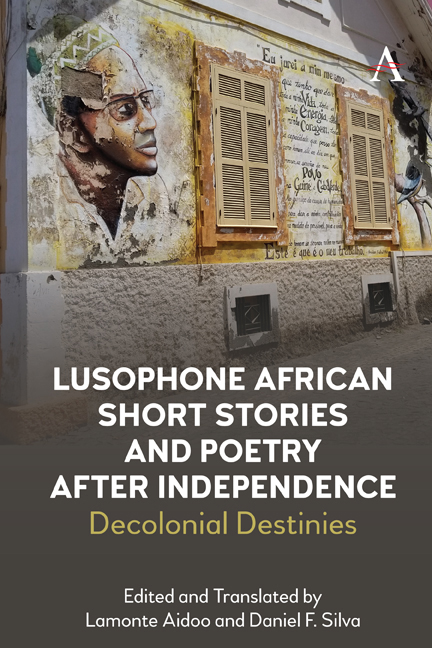Chapter 16 - José Craveirinha
Published online by Cambridge University Press: 23 February 2022
Summary
Introduction
Born José João Craveirinha (1922–2003) in the Mozambican capital, Maputo (then Lourenço Marques), Craveirinha's literary trajectory spans Portuguese colonialism, anticolonial struggle, and postcolonial nationhood. As the child of a Black mother of Ronga ethnicity and a white Portuguese father, Craveirinha grew up speaking Portuguese at home and surrounded by Portuguese culture. During the 1950s, he joined the Lourenço Marques African Association—a social organization—eventually becoming its chairperson. With his growing local influence, he became a member of the anti-imperialist and anticapitalist Frente de Libertação de Moçambique (Mozambique Liberation Front, FRELIMO), participating in clandestine meetings during the 1950s and 60s.
During this time, he began publishing poetry in various literary magazines and other periodicals, including the famed O Brado Africano—that showcased authors of the Portuguese colonies in Africa for over five decades, and was read throughout Lusophone Africa and Portugal. The publication ultimately folded with formal decolonization. He published a collection of these poems and other unpublished pieces in his first book, Chigubo. In 1965, following investigations and raids by the Portuguese secret police (PIDE), Craveirinha was imprisoned and then released in 1969. After his release, he published arguably his most notable collection of poetry—Karingana wa karingana (Once Upon a Time) in 1974, at the end of the war for independence.
Following independence, he was appointed by the FRELIMO to serve as deputy director of the national press and became arguably the most celebrated literary voice of the postcolonial nation in the 1970s and 80s alongside other important figures such as Noémia de Sousa (1926–2003) and Marcelino dos Santos (1929). Beyond his acclaimed writing, he served vital and symbolic roles in the formation of national literature, becoming the first president of the Association of Mozambican Writers in 1982 until 1987, and having a national literary prize bearing his name—the José Craveirinha Prize for Literature. In the decade following independence, he continued to write poetry, publishing a collection written while in prison, Cela 1 (Cell 1, 1980). Following his wife's death, he published another collection, Maria (1988) in which he grapples with the trauma of his loss.
- Type
- Chapter
- Information
- Lusophone African Short Stories and Poetry after IndependenceDecolonial Destinies, pp. 187 - 192Publisher: Anthem PressPrint publication year: 2021



